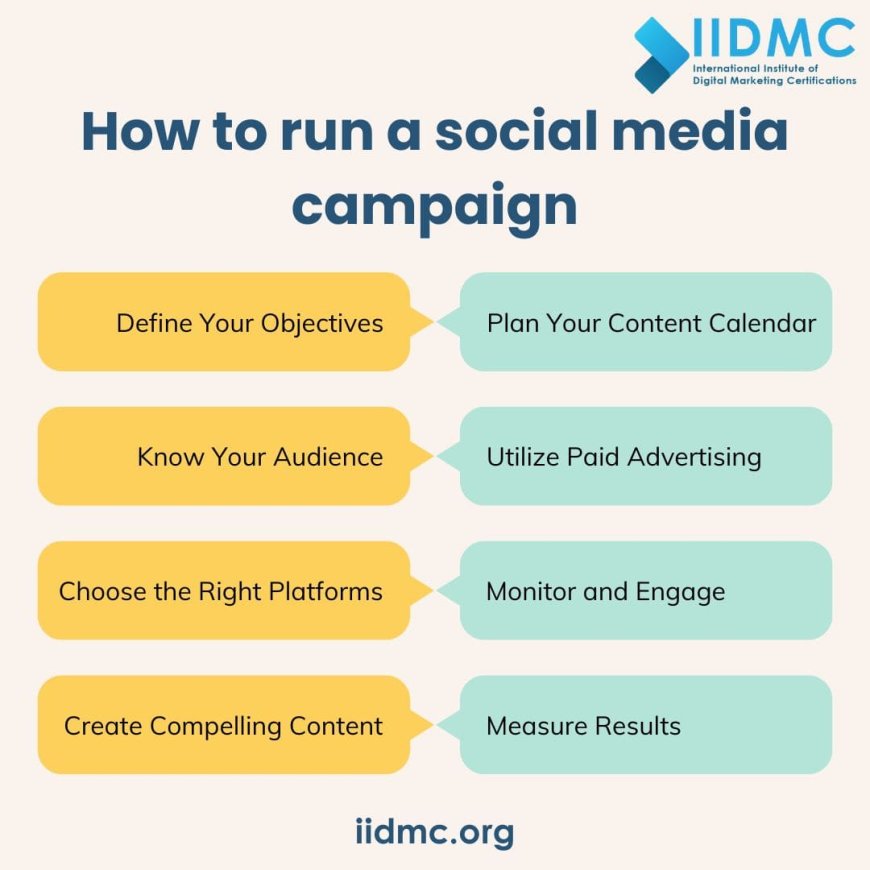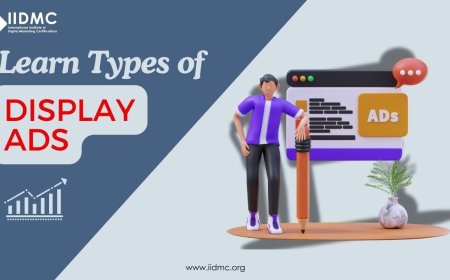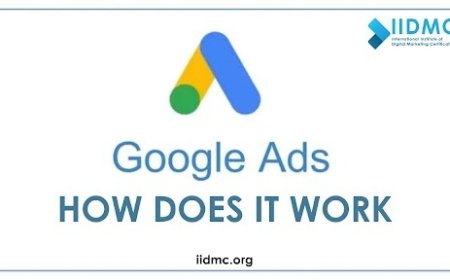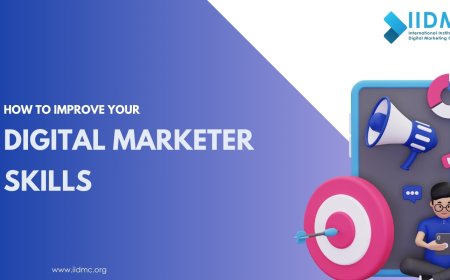How to Run Successful Social Media Ad Campaigns
Learn key strategies and tips for running successful social media ad campaigns to boost engagement, drive traffic, and increase conversions.

Developing specific targets that are in line with your objectives is the first step toward managing effective social media ad campaigns. Gain a full understanding of your audience and use analytics to customize content and choose the appropriate channels. Produce engaging content that is mobile-friendly and makes use of targeting possibilities to connect with the right audience segments. Establish a budget and timetable, keep a careful eye on the performance, and actively interact with the audience. To improve results over time, measure the results against predetermined goals and refine your plan continuously.
Assume you manage a little internet clothes business. You choose to use social media advertising to increase sales of your most recent collection. Finding out who and what your consumers are is a good place to start. So you make visually striking advertisements that highlight your clothes. To show this advertising to those who are most likely to buy them, you can use tools on Facebook and Instagram. You monitor the performance of your ads while they are running and make any necessary adjustments. To keep people interested in your advertisements, you also make sure to engage in conversation with them. You can determine what works best and continue with it by tracking the number of individuals who click on your adverts and purchase your clothing.
Challenges in Social Media Ad Campaigns
-
Ad Fatigue: Overexposure to the same ad content can lead to ad fatigue among the target audience, resulting in decreased engagement and effectiveness of the campaign.
-
Ad Blocking: Some users employ ad-blocking software or settings, which can prevent ads from being displayed on social media platforms, limiting the reach of the campaign.
-
Platform Algorithm Changes: Social media platforms frequently update their algorithms, affecting the organic reach and visibility of ads. Marketers must stay updated and adapt their strategies accordingly to maintain campaign performance.
-
Increasing Competition: As more businesses utilize social media advertising, competition for audience attention and ad space intensifies, making it challenging to stand out and achieve campaign objectives.
-
Rising Costs: Increased demand for social media advertising can lead to higher costs per click or impression, making it difficult for businesses with limited budgets to achieve their desired results.
-
Ad Fraud: Social media ad campaigns are susceptible to various forms of ad fraud, including click fraud and impression fraud, which can waste ad spend and undermine campaign performance.
-
Targeting Limitations: While social media platforms offer advanced targeting options, there may be limitations in reaching highly specific audience segments, especially in niche markets or regions with limited user data.
-
Negative Feedback and Comments: Social media ads are open to public feedback, including comments and reviews, which can sometimes be negative or critical. Managing and responding to negative feedback effectively is crucial to maintaining social media branding reputation and trust.
Why social media marketing campaigns are so important in digital marketing
-
Audience Reach: Social media platforms boast billions of active users worldwide, making them one of the most extensive networks for businesses to connect with potential customers. With such vast user bases, social media marketing campaigns have the potential to reach audiences of all demographics, interests, and geographic locations.
-
Targeted Advertising: Unlike traditional advertising methods that often cast a wide net, social media platforms offer highly sophisticated targeting options. Advertisers can narrow down their audience based on demographics (such as age, gender, and location), interests, behaviors, and even specific criteria like purchasing behavior or life events.
-
Cost-Effectiveness: Social media marketing is often more cost-effective than traditional advertising channels like TV, radio, or print media. With flexible budgeting options, businesses can set their ad spend according to their budget and objectives. Additionally, the ability to track and measure campaign performance in real time allows marketers to optimize spending and maximize return on investment (ROI).
-
Brand Awareness: Establishing and maintaining a presence on social media platforms helps increase brand visibility and recognition. Regularly sharing engaging content, interacting with followers, and participating in conversations within the community keeps the brand top-of-mind among target audiences. Over time, consistent exposure to brand content leads to improved brand recall and awareness.
-
Engagement and Interaction: Social media platforms facilitate direct communication between brands and customers, enabling meaningful interactions and engagement. Brands can respond to comments, messages, and mentions promptly, addressing customer inquiries, providing support, and fostering positive relationships.
-
Data and Analytics: Social media platforms provide powerful analytics tools that offer insights into various aspects of campaign performance and audience behavior. Marketers can track key metrics such as reach, engagement, click-through rates, conversions, and more in real time.
-
Viral Potential: Social media campaigns have the potential to go viral, reaching a much larger audience beyond the initial target audience. Compelling content that resonates with users can spread rapidly through likes, shares, retweets, and comments, exponentially increasing brand exposure and awareness.
-
Customer Insights: Social media interactions provide valuable insights into customer preferences, opinions, and behaviors. Monitoring conversations, sentiment analysis, and gathering feedback from social media communities can help businesses understand their audience better.
How to run a social media campaign

-
Define Your Objectives: Clearly outline the goals you want to achieve with your campaign, whether it's increasing brand awareness, driving website traffic, generating leads, or boosting sales.
-
Know Your Audience: Understand the demographics, interests, and behaviors of your target audience. Use social media analytics tools to gather insights and tailor your campaign strategy accordingly.
-
Choose the Right Platforms: Select social media platforms where your target audience is most active. Consider factors such as demographics, interests, and platform features to determine the best channels for your campaign.
-
Create Compelling Content: Develop engaging and relevant content that resonates with your audience. Use a mix of visuals, videos, and copy that highlight the unique value proposition of your product or service.
-
Plan Your Content Calendar: Establish a content calendar outlining the timing and frequency of your posts. Ensure consistency in your messaging and maintain a balance between promotional and engaging content.
-
Utilize Paid Advertising: Consider using paid advertising options available on social media platforms to amplify your reach and target specific audience segments. Set a budget and define your targeting parameters to maximize the effectiveness of your ads.
-
Monitor and Engage: Monitor the performance of your campaign in real-time using analytics tools provided by social media platforms. Engage with your audience by responding to comments, messages, and mentions promptly.
-
Measure Results: Track key performance metrics such as reach, engagement, click-through rates, conversions, and ROI. Evaluate the success of your campaign against your predefined objectives and make adjustments as needed.
Managing effective social media advertising campaigns is an essential part of an all-encompassing digital marketing plan. You may effectively engage with your target audience and accomplish your company goals by establishing clear objectives, knowing your audience, and utilising the appropriate platforms and content techniques. The drawbacks of social media advertising, such as ad fatigue, escalating competition, and platform algorithm changes, must be recognized and addressed. You may produce significant results and make a name for yourself in the digital sphere by being informed, consistently improving your campaigns, and taking use of the special advantages of social media marketing in the larger framework of digital marketing.





























